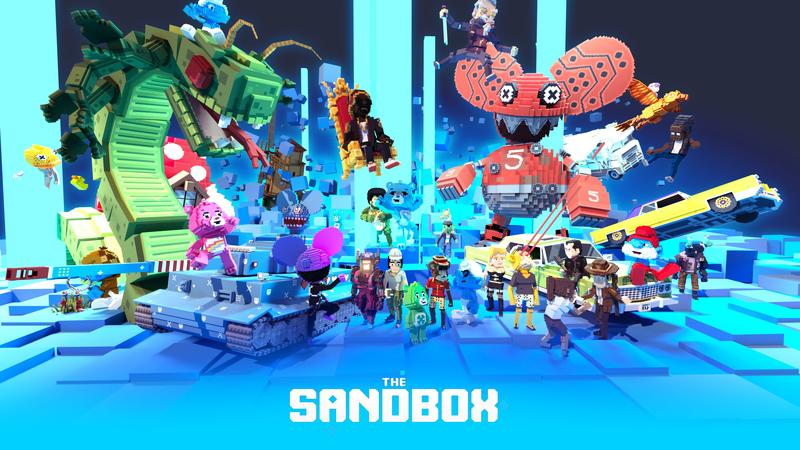
The COVID-19 pandemic has created a largely separated physical world as global tourism dwindles, along with sagging demand for office space and lower footfall at shopping malls.
The digitalization trend has sparked an unprecedented reshuffle across industries, giving advanced manufacturing a shot in the arm.
“COVID-19 is a game changer,” said Edmond Lai Shiao-bun, chief digital officer of the Hong Kong Productivity Council — a statutory, multidisciplinary organization set up in 1967 to boost productivity of enterprises through innovative technologies and services. “The digital trend has taken a quantum leap at both individual and organizational levels amid the public health crisis.”
Digital transformation has forced Hong Kong businesses to change the way they operate to stay afloat. “Enterprises can now swiftly detect and respond to market expectations and quickly adapt to the changes, addressing the dynamic business demands under the new normal,” said Lai. Paperless offices with long-term changes in the way they operate are likely, he added.
Besides retail stores and commercial offices, the digital rush has taken Hong Kong manufacturers by storm, making “Made in Hong Kong” one of the most pronounced brands to be warmly greeted by consumers.
“Local original equipment manufacturers have also stepped up production of critical components for world-renowned brands. The ‘Made in Hong Kong’ label is a guarantee of confidence,” said Lai.
He said he believes Hong Kong, as the core hub for external circulation of goods, has an absolute advantage in developing advanced manufacturing, such as semiconductors, amid a worldwide chip shortage.
“Industry 4.0 is getting real in Hong Kong,” he said. “Intelligent manufacturing is a good way of tackling space constraints with less labor involved in the production process.”
Industry 4.0, or reindustrialization, put forth in Hong Kong’s 2016 Policy Address, refers to the development of high value-added industries and manufacturing processes that make use of smart production, data analysis and the internet of things.
 Characters and a scene from The Sandbox, a blockchain gaming platform, which offers virtual real estate. The Sandbox said it has added several Hong Kong partners to create a Mega City, bringing more of the city’s culture to the platform’s metaverse. (PHOTO PROVIDED TO CHINA DAILY)
Characters and a scene from The Sandbox, a blockchain gaming platform, which offers virtual real estate. The Sandbox said it has added several Hong Kong partners to create a Mega City, bringing more of the city’s culture to the platform’s metaverse. (PHOTO PROVIDED TO CHINA DAILY)
According to Lai, 2021 was a record-breaking year for the HKPC’s home-grown innovative enterprises in smart production, winning 58 international awards for various projects, such as the manufacturing of contactless elevator control panels.
For upcoming reindustrialization trends, he expects the focus to be on sectors like intelligent automation, smart wearables, immersive technology, and artificial intelligence, as well as big data and analytics.
Propelled by digitalization, last year also saw a boom in the digital space, triggering a series of crypto-related crazes. The roller-coaster ride in the value of cryptocurrencies hit an all-time high in January 2021, having seen highs and lows over the previous year. Bitcoin reached a record high price of $68,990.90 on Nov 10, overtaking the previous high at just below $65,000 in mid-April last year.
The cryptocurrency frenzy was followed by that of non-fungible tokens, which are being promoted as the digital answer to collectibles. They are unique, non-interchangeable items, as opposed to shares, commodities and dollar bills which are fungible. The current experiments with NFTs are taking place mostly in the gaming, fashion and art sectors, with digital art being one of the beneficiaries.
“The popularity of cryptocurrencies has fuelled people’s interest in investing in NFTs,” said Evan Auyang, group president of Animoca Brands, a Hong Kong-based multinational blockchain technology and investment company. “People are jumping on the NFT bandwagon because ignoring it may mean missing out on opportunities.”
Hong Kong companies, being agile and adaptive, have joined the bandwagon. The city’s soccer club, Resources Capital Football Club, became the first Asian soccer team to launch NFTs after striking a deal in July last year. Other companies joined The Sandbox — a blockchain gaming platform which offers virtual real estate, called Land NFTs — to build virtual experiences in the metaverse.
“Metaverse”, comprising the prefix “meta” — a Greek word meaning “beyond” — and “universe” has become a buzzword. Moves into the “mirrored reality” by tech giants such as Facebook (now known as Meta) and Microsoft have ignited the space. They prodded Hong Kong companies, including startups and traditional enterprises, to join in, putting the digital land concept under the spotlight.
New entrants to the space include Hong Kong tycoon and CEO of New World Development Adrian Cheng Chi-kong, alternative investing company Sun Hung Kai & Co, and professional services firm PwC Hong Kong, as well as celebrities like actor and film director Stephen Fung Tak-lun and actress Shu Qi. They have bought Land NFTs in the Sandbox’s virtual real-estate metaverse in building the “Mega City”.
“Mega City” will feature Hong Kong’s real estate, art and entertainment, as well as professional services, according to Harvey Tsoi, managing director of Greater China at The Sandbox. The merits of virtual land include exclusive ownership and the possibilities it offers to its owners as there is no limitation of gravity, allowing landowners to build their space at will, he said.
 Characters and a scene from The Sandbox, a blockchain gaming platform, which offers virtual real estate. The Sandbox said it has added several Hong Kong partners to create a Mega City, bringing more of the city’s culture to the platform’s metaverse. (PHOTO PROVIDED TO CHINA DAILY)
Characters and a scene from The Sandbox, a blockchain gaming platform, which offers virtual real estate. The Sandbox said it has added several Hong Kong partners to create a Mega City, bringing more of the city’s culture to the platform’s metaverse. (PHOTO PROVIDED TO CHINA DAILY)
Investors’ growing interest in digital land is intertwined with a better understanding of the metaverse and its real-life connection, said Tsoi, adding that virtual space owners can benefit from fashion exhibitions on their lands, digital assets trading and real-estate rental. “IP (intellectual property) and brands’ presence can add value to the lands around them as they may expand their territory.”
For this year, an insider expects to see a healthier and quality-focused crypto space. “We invest in companies as well. We will look at whether they have the patience,” said Auyang from Animoca Brands. “Web 3.0 is a philosophical, purpose-driven economy. People may want to make a quick buck from it. They are not builders,” he said, comparing Web 3.0 to the open metaverse.
Despite a growing crypto community, Auyang noted that Hong Kong is not a leader in blockchain development due to a lack of tech talent. “Overall, we do have tech talent in the Guangdong-Hong Kong-Macao Greater Bay Area, but in Hong Kong, we don’t have enough of them. Shenzhen has seen relatively good growth in its talent pool and Hong Kong should really look at the matter seriously,” he said.
To fill the gap in technology skills, the Hong Kong government, institutes and the private sector have ramped up cooperation with their counterparts on the Chinese mainland, integrating into the Greater Bay Area.
The future Northern Metropolis — a grand plan to reshuffle the city’s landscape and economy — was unveiled on Oct 6 by Hong Kong Chief Executive Carrie Lam Cheng Yuet-ngor in the last policy address of her current tenure. Known as the Northern Metropolis Development Strategy, the mega project aims to ease Hong Kong’s long-standing housing and land shortage problems and promote economic integration with Shenzhen and the other cities in the Greater Bay Area cluster.
A new information and technology park known as San Tin Technopole, covering an estimated area of 1,100 hectares, will be launched to facilitate technology development in areas like research and development, advanced manufacturing and life-health sciences.
“Hong Kong companies have shown increasing interest in integrating their businesses into the Greater Bay Area,” said Sam Wong Tsz-wa, general manager at TusPark (Tsinghua University Science Park) Hong Kong — a startup incubator.
“The cost of starting a business in Hong Kong is higher,” he noted. “If you can’t sustain a team, there is nothing more to talk about.”
For startups, the mainland cities of the Greater Bay Area can offer a better foundation for industrial use of their products, while in Hong Kong, the scenario is often limited to tailor-made solutions.
“If you have the technology, it’s easier to get funding on the mainland after standardizing it and applying it to industrial use. For Hong Kong, it’s more difficult,” said Wong.
For this year’s tech trends, he expects three sectors to be vibrant — data application, continual digital transformation and biotechnology.
Wong is worried that the investment frenzy in the crypto boom will remove hot money from startups focusing on hardcore technology. “We are not introducing such (crypto) companies into the incubator,” he said.



